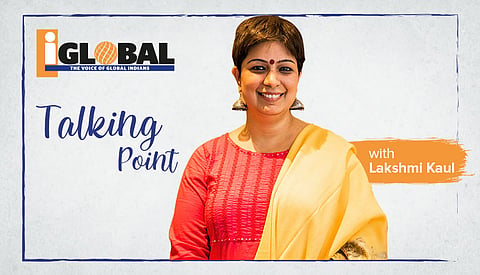

Nainika and I got into an argument once about which country she would represent in the Olympics as a gymnast – her ambition was to win an Olympic gold as a gymnast. Her immediate response was that she will represent India.
I teased her and said: “but you aren’t Indian; you are British. You train with the British Gymnastics Association so how can you represent India?” She didn’t like my response and told me off explaining how she will be able to decide what country she relates with and that she was an Indian British girl.
You will have heard the term BBCD, an abbreviation for British Born Confused Desi. It is of course used in a rather teasing manner to refer to British-born Indian-origin members of the diaspora who according to their non-British-born peers are confused about their identity.
It got me thinking as to why this was the case.
There isn’t a one size fits all ever when referring to demographics and socio-ethnic profile of people. If you took a closer look at the Indian diaspora in the UK for instance, there are two clear categories of them:
People who trace their heritage and origin to India but a couple of generations back came from the African subcontinent to the UK.
People who were born in India and grew up there but moved to the UK for education or to work here; often on a transfer and stayed on for years.
So families of the above two categories have different reference points of India and their correlation with their “Indian” identity. What they know of India depends on how much they have experienced it, personally. I reflected on the “idea of India” in one of my earlier columns. As an extension of that idea of India is the translation of people’s correlation with their degree of “Indian-ness”.
One can find spoofs of Indian family life in popular comedy shows. Typically, the impression presented by these shows is that Indian parents are strict, focussed on academia and have different ideas when it comes to aspiration. There are also a lot of jokes about the Indian accent and the Indian headshake. This somehow creates the impression that all Indians are the same and are too conservative in their outlook and have a limited worldview.
But the fact is that a large majority of top jobs across the corporate world are taken up by Indians. Also, the success rate across professions and career streams is high, if not yet the highest among Indians. For talent acquisition, an Indian candidate would perhaps fare prominently on parameters of work ethic, diligence, hard work, capability and loyalty by recruiters. One wonders why? Ah! Of course the strict, OCD, often very pushy Indian parenting might have something to do with it?
As with everything there is the flip side and with people travelling and settling around the world, with the professions evolving and careers diversifying, there is an expanding footprint of Indians across the board. Indian parents dream of a successful career for their children so that their lives are bereft of any obvious hardships. The discipline prepares them to face the most dire circumstances.
One notices a sense of pride and comfort among our generation of professionals in being recognised as an “Indian” because perhaps we are first Indian and then any other nationality that we adopt by way of our residence and vocation? For many who are born confused is simply owing to their lack of exposure to what it means to be Indian. There is history, heritage and culture to connect to the roots but also a sense of achievement, globally that one might be shown to relate to their Indian heritage. The achievement quotient is definitely among the highest anywhere in the world.
The Queens’ Honours List over the weekend published names of prominent ethnic Indians. The role of the Indian diaspora in weaving a strong societal value system in the UK is commendable and the desi Cabinet of Prime Minister Boris Johnson is proof that ethnic Indians hold the top most jobs in this country. If I were to list successful Indians in the UK, I certainly will run out of space but not names.
There is something that I wonder about often. British Indian was a phrase used during the colonial times in reference to “British (colonial) India”. Today, an independent, strong, free country, it surely should be “Indian British” or “Indian American” or Indian and then any other nationality that we adopt instead of it being the same colonial phrase?
It may change perspective for many who still find themselves confused. Perhaps you, the reader, could connect through our social media and let us know what you think.
Lakshmi Kaul is the London-based UK Head & Representative at the Confederation of Indian Industry (CII) and an active Indian diaspora campaigner. In this regular Talking Point column for ‘iGlobal’, she will focus on issues that deserve spotlighting within the Global Indian community, referencing her personal experiences.